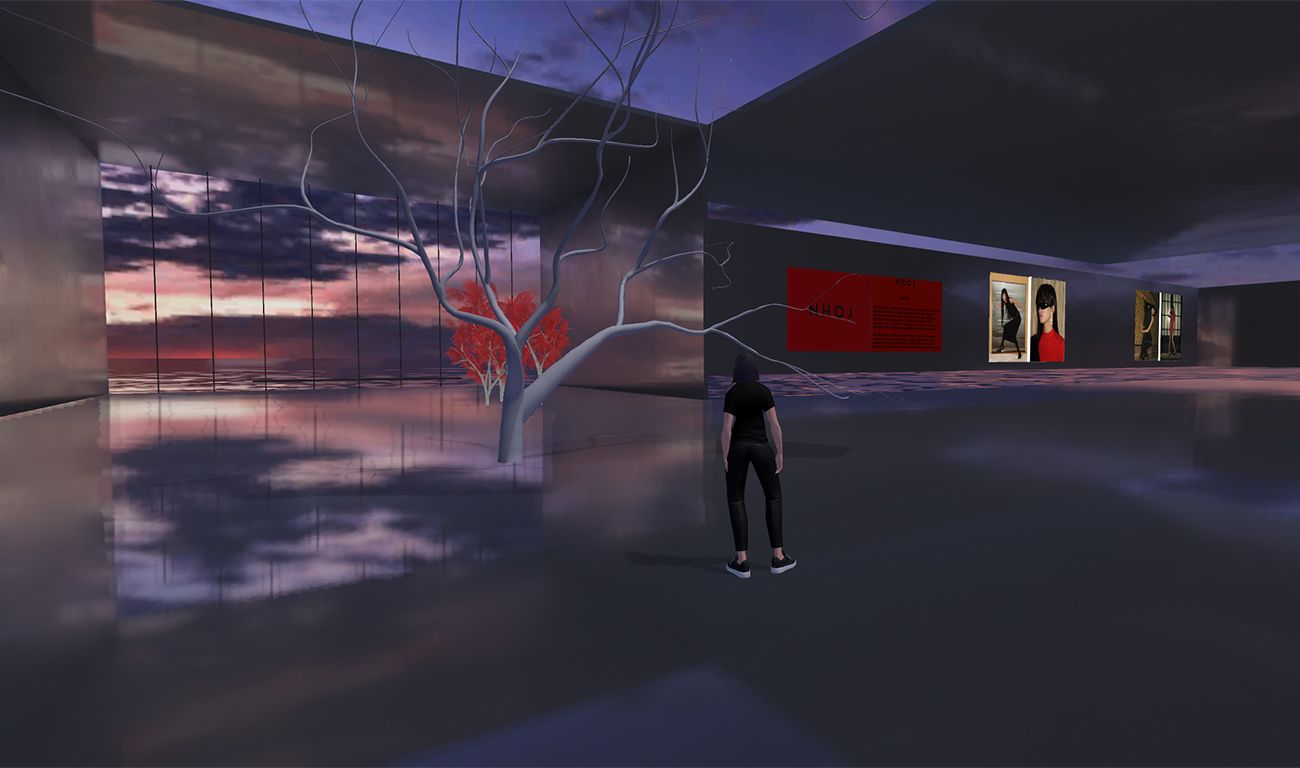
The Future of Fashion Buying

- Written byIrene Lau
- Published date 01 March 2023

As a fashion buyer who is passionate about the sustainability and development of brands, discovering and nurturing emerging fashion designers. I am excited about the potential of technology to transform the fashion industry and usher us into a new era of Web 3.0.
During my Master's degree thesis research at Central Saint Martins, I explored the possibilities of virtual buying and sustainability in fashion by proposing a business plan for a metaverse platform called 'Meta-F'. The overarching goal of Meta-F is to integrate the vision of metaverse with fashion, while also considering the needs of future metaverse stakeholders and audiences.
My research aims to provide direction and suggestions for the development of metaverse for the future of fashion buying. I believe that a space like Meta-F has the potential to play a pivotal role in shaping the industry and advancing sustainability efforts.

A Snapshot of the Meta-F: Breaking Boundaries in Fashion on Buying, Global Markets and Education
As I step into Meta-F Island, I am transported to a virtual world that transcends space and time. The platform offers an unparalleled experience for fashion buyers and designers, utilizing five dimensions to immerse users in a world of creativity and innovation. With four distinct spaces to explore — the Academy, Runway, Showroom, and City.
The Meta-F project aims to revolutionize the fashion industry by enhancing fashion buying efficiency and building lasting industry connections through immersive experiences, interactions, and data tracking. By proposing a digital showroom template, Meta-F reduces the need for actual installations, offering designers an immersive experience for showcasing their collections and engaging with audiences. The metaverse presents exciting opportunities for the fashion education sector. It increases customization, creativity, and student engagement in learning, broadening the talent pools from the game-based and multilingual learning environments.

Key Insights from Industry Stakeholders
I had the opportunity to speak with key fashion and Web 3.0 industry stakeholders, including representatives from LVMH Prize, Printemps France, and the virtual showroom and NFT sector to discuss their vision for the metaverse with fashion.
It is inspiring to know entering the metaverse is not about making an immediate profit. Rather, it is about creating cutting-edge digital experiences that enhance brand marketing and user engagement. As a result, fashion brands planning to launch on Web 3.0 are targeting a demographic that is distinct from their existing customer base.
While digital elements are essential to include everyone, the physical visit remains crucial. Fashion's presence in the metaverse requires significant technological advancements and numerous steps. However, young fashion designers are eager to innovate the fashion industry ecosystem, slash costs for runway shows, and enable a more transparent flow of data via blockchain technology. They see the metaverse as a new way to achieve these goals and have a timeless travel to fashion masters’ studios. They hope to meet mentors with forward-thinking outlooks and expansive industry expertise, guiding them to combine invention with profitability.

At Last, “The Future of Fashion Buying”
After conducting extensive research and outlining the hypothetical designed spaces of Meta-F, I am excited about the possibility of the migration of fashion buying, education, and fashion week activities to the metaverse. This could increase global accessibility and mitigate geographical restrictions, improving the future of fashion.
However, one primary obstacle for fashion's success in the metaverse is visual fidelity. Nevertheless, Meta-F emphasizes that the metaverse in fashion is still in its early stages of development. This serves as a reminder for fashion buyers to keep up with technology development, as there will be many opportunities for the fashion industry to enter a new era with a new ecosystem.
The emergence of the metaverse also presents a challenge to the current role of fashion buyers in the industry. With brands showcasing and selling directly to their customer base on the metaverse, there will be fewer buyers going to fashion week and mediating in boutiques. As a result, the role of fashion buyers will inevitably change with the progression of AI and VR, impacting an increasingly technologically savvy and digitally driven consumer base. Buyers will have to contemplate more meaningful ways to connect with customers, and fashion brands will have to invest in engaging audiences through cutting-edge digital experiences.
The focus of fashion retailers may also evolve towards the artistic direction of the physical store or digital experience design through product selection. Despite these changes, I am optimistic that the fashion industry will become even more dynamic and creative by harnessing the power of technology, and look forward to the next evolution of fashion buying and retailing!
Post-Grad Stories
Download the PDF Guide to writing articles for Post-Grad Stories
Want to write an article? Get in touch with the Post-Grad Community team PGCommunity@arts.ac.uk
UAL Post-Grad Community
Established in 2013, Post-Grad Community is an inclusive platform for all UAL postgraduate students to share work, find opportunities and connect with other creatives within the UAL and beyond. Find out more